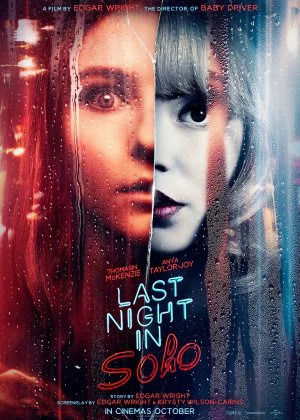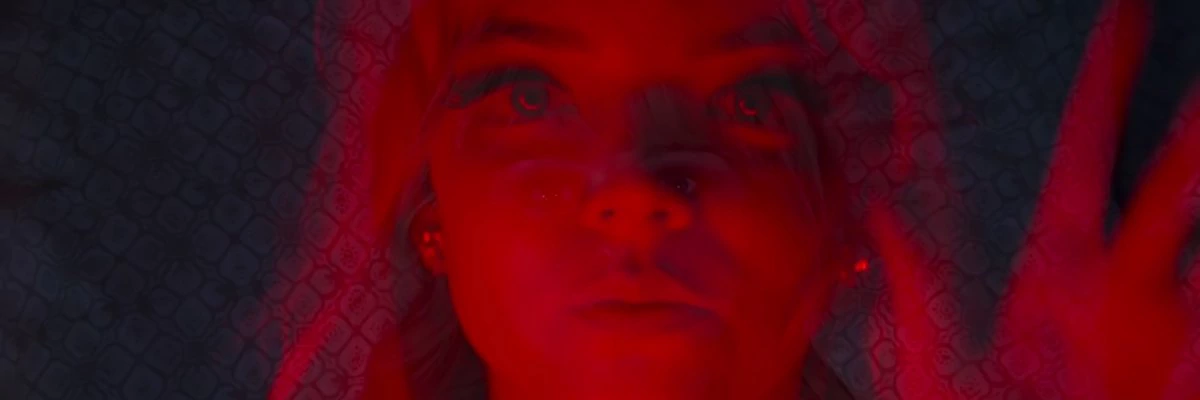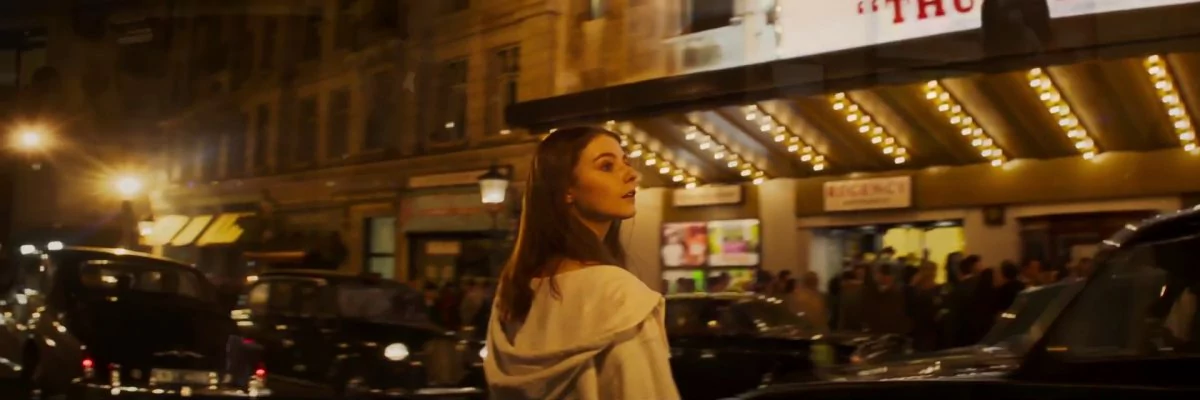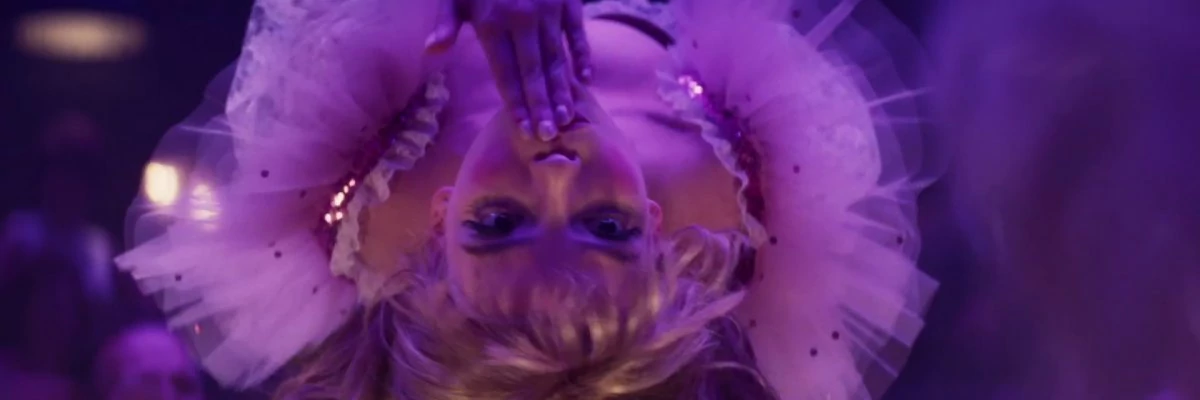Last Night in Soho

A film I was secretly expecting to be pretty great. I'm not the biggest Edgar Wright fan in the world, he truly is a bit hit-and-miss for me, but when he fully commits to the atmosphere of his productions and doesn't mind getting a little creative in the process, he can be quite the formidable director. As Last Night In Soho presented itself as a moody UK horror/mystery, I had high hopes this would be one of Wright's better films. I'm glad to say I wasn't disappointed in the slightest, Last Night in Soho is in fact one of his best films to date.

My biggest worry was that the film was openly harking back to the 60s. I'm generally not one for throwbacks, I don't have a big affinity with classic cinema and the main reason I disliked Wright's Baby Driver was the amount of 80s pandering present, so safe to say I did have some reservations going into this film. It turns out I was only worrying needlessly. Even though the 60s vibe is laid on thick in just about every possible way, Wright applies it in a very contemporary and creative way, so at no point did it feel like I was watching yesteryear's cinema.
While the trailers were pretty eager to sell this film as a straightforward horror flick, it's probably best to temper your expectations in that regard. Not that I wouldn't classify it as horror, all the ingredients are there after all, but Wright seems more interested in conjuring up moods, rather than going directly for nail-biting terror or gore. This may disappoint some people who were hoping for a simpler date flick, then again there's really no lack of options if that's what you're after. Wright aims higher and Last Night in Soho is all the better for it.
Eloise is an aspiring fashion designer who moves to London to realize her dream. She has a penchant for the 60s, making her somewhat of an outcast among her classmates. She moves out of her dorm and into an old attic, hoping to find more space for herself. There she starts getting dreams of Sandie, a young singer who wants to make it big as an entertainer. She becomes Eloise's muse, but with every successive dream Sandie's story turns darker and after a couple of nights, Eloise fears falling asleep. Even though Sandie lived decades ago, Eloise is determined to find out what happened to her.

Neon-drenched visuals are all the rage these days (even prompting people to start using terms like neon-noir/purple noir) and Wright puts the style to good use. It certainly helps to give the film an almost Argento-like flair, with its bold use of color, matriculate camerawork and snappy editing. Though still frames may be drenched in a strong 60s vibe, Wright's visual language is decidedly more contemporary. It makes for a real visual feast that oozes atmosphere and makes it so much easier to get engrossed in Wright's world.
The same goes for the soundtrack. Wright goes for the best of 60s pop hits here, but the way the tracks are used is anything but old-fashioned. Repeated vocals, distorted melodies and downtempo mixes (turns out Taylor-Joy actually recorded the version of Downtown herself, quite a voice she has too) make for a superb soundtrack. And that's coming from someone with no affinity at all for 60s music. This is probably the biggest differentiator with Wright's Baby Driver, where there might have been some lyrical fun in his track selection, but the soundtrack still sounded like a bland and dreary 80s pop mix. Luckily, there's none of that here.
The casting is pretty perfect too. Anya Taylor-Joy is well on her way to become one of the biggest actresses of her time, Thomasin McKenzie holds her own remarkably well next to her, providing a nice counterpoint to Sandie's character. It's not just the leads though, smaller roles like Matt Smith's, Terrance Stamp's and Diana Rigg's are perfectly cast too. Each character, no matter how small the part, seems to be a perfect fit and leaves an indelible impression. A good thing this film was set in London instead of some American city like New York.

For the biggest part, Wright neatly sticks to genre conventions. The little twist he works in at the end isn't too overwhelming, then again if you're just here for the plot you probably won't get much out of it anyway. Now, if you're here for all the nods to the 60s, there's a lot more to uncover, as long as you can accept the film isn't a straight ode to a bygone era. Wright is more than eager to reference genres, artists and locations and indulge in them, but he does so very consciously and openly, and always from a contemporary perspective.
Last Night in Soho offers oodles of what I like best in cinema: thick, tangible atmosphere. It's a film made to submerge yourself in. A beautiful fever dream that transports you to the seedy underbelly of a different place and time, built on dazzling cinematography, a well-tailored score and excellent performances. Last Night in Soho is a full-on mood piece that carries Wright's signature on its sleeve and isn't ashamed to let the narrative take a back seat when needed. While I'm certain he'll keep on producing hits and misses along the way, this is definitely a film for the ages.